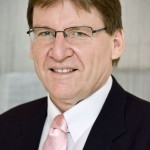Young Tasmanian electrical engineer Natalia Galin has turned US technology into a robust helicopter-borne radar system that can accurately measure the thickness of snow on polar sea ice.
Meet the Fresh Scientists of 2010
Come along to hear the Fresh Scientists of 2010 talk about their discoveries at one of our public events.
You will be able to hear them at the following venues:
- Monday 7 June, 7pm at the Duke of Kent for Fresh Science at the pub.
- Thursday 10 June 11-12 or 12:30-1:30 at the Melbourne Museum at the free school forums.
For more information on these events, visit our events page.
Fresh Scientists of 2010
We are pleased to announce the Fresh Scientists of 2010:
- Peter Domachuk, School of Physics, University of Sydney
- Naomi McSweeney, School of Microbiology and Immunology, University of Western Australia
- Andrew Dowdy, Bureau of Meteorology
- Julien Ridoux, Department of Electrical and Electronic Engineering, The University of Melbourne
- Bridget Murphy, School of Biological Sciences, University of Sydney
- Dave Ackland, Department of Mechanical Engineering, The University of Melbourne
- Colin Scholes, CRC for Greenhouse Gas Technologies
- Bianca van Lierop, School of Chemistry, Monash University
- Jason Du, CRC for Contamination Assessment and Remediation of the Environment
- David Floyd, Anglo-Australian Observatory /The University of Melbourne
- Nasrin Ghouchi Eskandar, Ian Wark Research Institute, University of South Australia
- Rylie Green, Graduate School of Biomedical Engineering, University of New South Wales
- Jennifer Firn, CSIRO Sustainable Ecosystems
- Natalia Galin, Institute for Marine and Antarctic Science, University of Tasmania
- Andrew Ward, South Australian Research and Development Institute
- Jacek Jasieniak, CSIRO Molecular and Health Technologies
More information on the 2010 Fresh Scientists will be available in the coming weeks.
ABC launches Bluebird – now I can change the world…
11 am, 27 April 2010
From Australians stranded in Europe to fresh vegetable growers in Africa, people dependent on the world’s airlines have done it hard in the past two weeks.
If the eruption of one volcano in Iceland can disrupt us so badly, what could the Bluebird project do? You are about to find out.
From today, the ABC invites you to enter the world of the experimental science of geoengineering—the deliberate manipulation of the Earth’s atmosphere to counteract climate change. Bluebird AR, an interactive alternative reality story about geoengineering, will play out on websites, in the social media, on ABC programs, and all around you. [Read more…] about ABC launches Bluebird – now I can change the world…
Eye drug finds new life in Geelong diabetes trial
People with diabetes invited to participate in trial
Media release: Geelong, Friday 23 April 2010
Modern drugs can stabilise adult onset diabetes but with some serious side effects. A Geelong-based company, Verva Pharmaceuticals, has a new approach – a drug used for many years to treat eye disease. In animal testing, the drug restored sensitivity to insulin. But will it be effective and safe in people? [Read more…] about Eye drug finds new life in Geelong diabetes trial
What happened at the UA climate forum?
You can catch up on the Universities Australia Climate forum held at Parliament House, Canberra on 18 March 2010 through the following links:
- read an overview of the forum
- follow the full presentation (audio + powerpoints) via AusSMC’s webex webinar (follow the instructions on their site)
- listen to the session audio through the following mp3 files:
- read the powerpoint slides: session 1 (.pdf, 2MB), session 2 (.pdf, 5MB), session 3 (.pdf, 3MB)
- review brief profiles on the speakers
- read Universities Australia’s response to the CSIRO/Bureau of Meteorology climate statement.
Australia’s climate is changing
Universities Australia forum reveals how we are responding
Australia’s peanut farmers are on the move—some are relocating nearly 2400 kilometres from Kingaroy to Katherine for better access to water; last year 88 people in Victoria died in the way to hospital directly as a result of the heatwave that preceded the disastrous bushfires of early February; the average temperature across the Australian continent has risen by more than 0.8 °C in the past 60 years; the Great Barrier Reef is degrading; and more than 40 per cent of the nation’s farmers are seriously worried about the viability of their businesses in the face of climate change, according to a recent nationwide survey for the Bureau of Rural Sciences.
UA Climate Forum – speakers
Prof. Peter Coaldrake
Universities Australia
Peter Coaldrake, the Chair of Universities Australia, is Vice-Chancellor of Queensland University of Technology (QUT), a position he took up in April 2003. He had previously been Deputy Vice-Chancellor in the same institution, and prior to that served for four years as Chair (CEO) of Queensland’s Public Sector Management Commission, the body established by the Goss Government to overhaul Queensland’s public sector.
Universities Australia Chair welcomes climate snapshot
Universities Australia today welcomed the release of the State of the Climate Snapshot co-authored by the CSIRO and the Bureau of Meteorology.
“This important statement from the CSIRO and the Bureau of Meteorology confirms the clear view of top Australian scientists, expert in the field, that Australia’s climate is changing,” said Professor Peter Coaldrake, Chair of Universities Australia and Vice-Chancellor of Queensland University of Technology.
[Read more…] about Universities Australia Chair welcomes climate snapshot
Killing bugs with gold and laser beams
Scientists have been able to kill an infectious parasite using non-toxic gold nanoparticles and laser beams.
“Our first target is Toxoplamosis gondii, a parasite that infects one in three people and causes problems especially in the young and old, and people with a compromised immune system says Michael Cortie from the University of Technology Sydney, speaking on behalf of his team at ICONN 2010 the international nanotechnology conference in Sydney.


